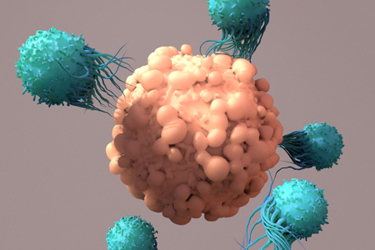A Novel Chemically Defined Medium Supports Superior Cross-Platform T-Cell Expansion
By Chengkang Zhang, Karen Roderick, Amy Burkall, Elizabeth Kagan, Soumendra Chatterjee, Janet Sei, Tamara Laskowski, Erin Brooks, Alexis Bossie

The current standard for CAR-T cell therapy manufacturing often relies on human serum, a component that introduces several challenges. Its high cost, potential contamination risks, and batch-to-batch variability can hinder consistency and scalability. As demand for CAR-T therapies grows, the supply of human serum may become insufficient to meet global needs.
To address these limitations, we have developed a novel cell culture medium that eliminates the need for human serum. This chemically defined medium is composed entirely of recombinant proteins, ensuring a consistent and controlled environment for T-cell expansion. It requires only the addition of cytokines and activation agents, simplifying the manufacturing process. Our medium has demonstrated superior T-cell expansion compared to other commercially available options that rely on serum supplementation.
The transition to a serum-free medium necessitates adjustments to standard cell culture procedures. We discuss alternative handling practices that can be implemented to optimize CAR-T cell production using this chemically defined approach. By adopting this innovative technology, we aim to make CAR-T therapy more accessible, consistent, and scalable, ultimately improving patient outcomes.
Get unlimited access to:
Enter your credentials below to log in. Not yet a member of Bioprocess Online? Subscribe today.
